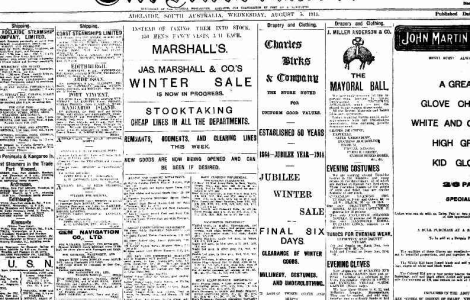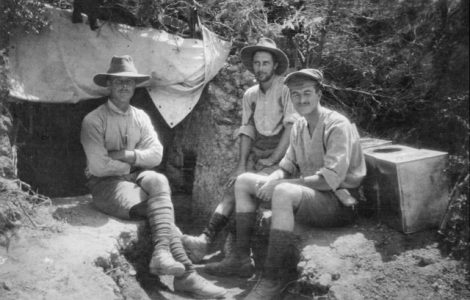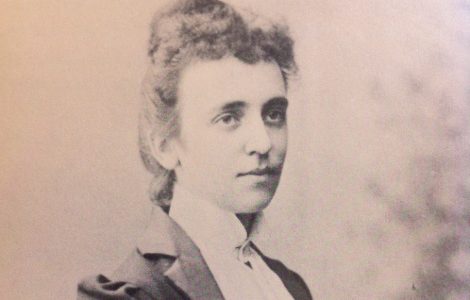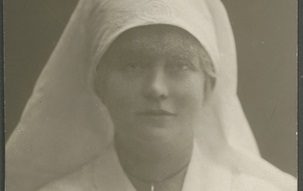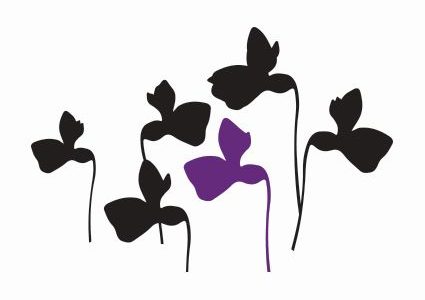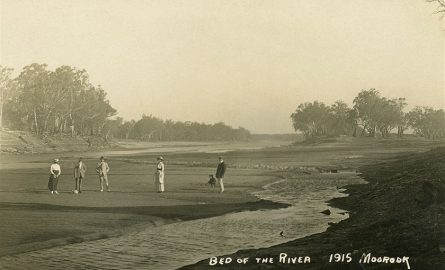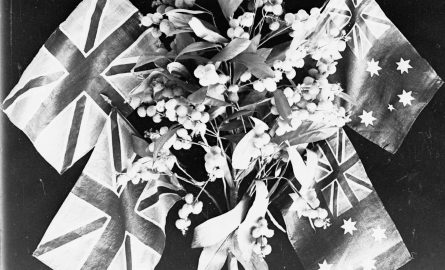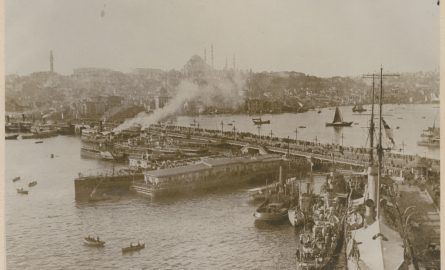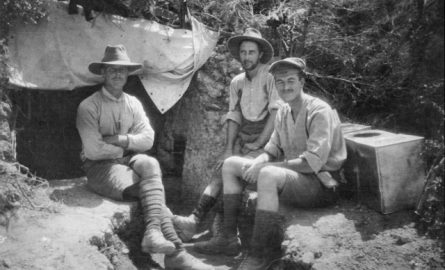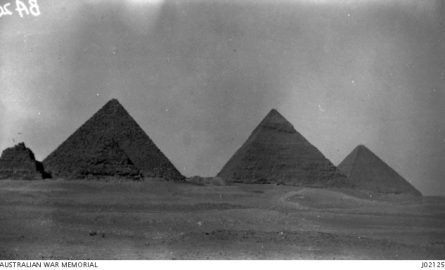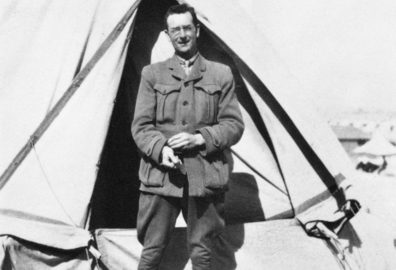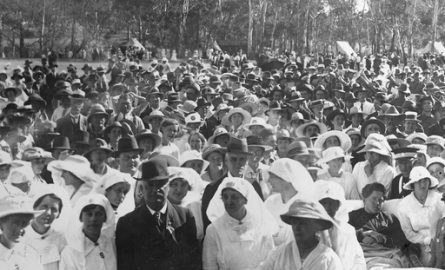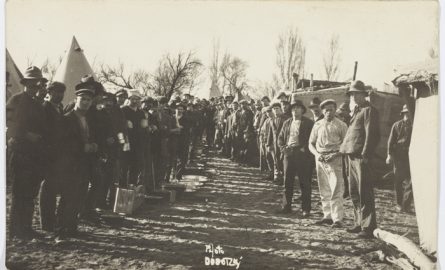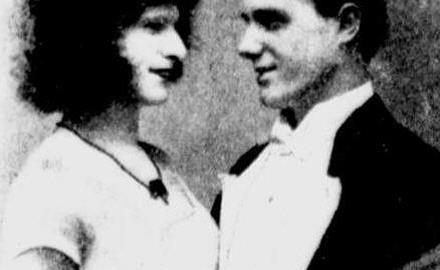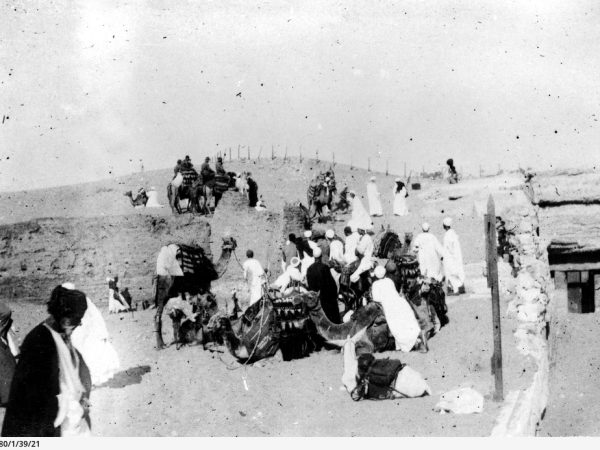
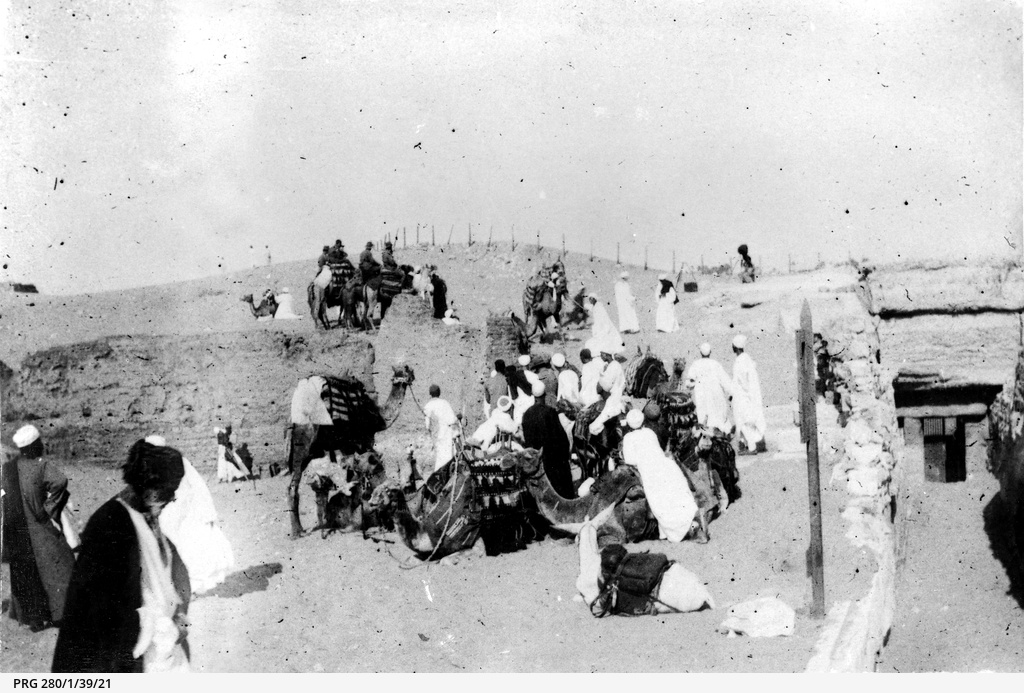
Australian soldiers going to see the Pyramids
Glossary Terms
Topics
People
Terrell, Frederick Leopold, Seager, Alexandrine, Bean, Charles, Kemble, Lindsay
Places
Organisations
January, 1915
This month: Broken Hill experiences a terrorist attack on New Years Day! Some of the troops in Cairo are creating a bad reputation for Australia.
1915 – A SOMBRE BEGINNING
1914 was one of the most trying years for many years, as the country has been drought stricken and as a result trade is simply paralysed, and to put a finishing touch to a disastrous year the most terrible war of modern ages, must break out making a very dull Xmas and a terrible bad outlook for the New Year. though we have experienced a few years good harvests there are many who are at poverties door already
These are the words with which Leo Terrell began his diary for 1915.
Although there were the usual celebrations of the New Year in Adelaide, with people congregating outside the illuminated Town Hall, there was not the usual gaiety. Leo Terrell’s sentiments seemed to reflect a wider mood.
DRAMA AT BROKEN HILL
January began with high drama. The war no doubt, felt a little closer to home after two ‘Turks’ opened fire on a crowded train near Broken Hill in what would be called a terrorist attack today. The Advertiser reported that four were killed and many others wounded as the two turbaned assailants ambushed a train of picnickers. The two were pursued and killed, but this event no doubt made things a little more uncomfortable for those of German descent in South Australia. (The Ottoman Empire was aligned with Germany.) Germans, too, were viewed as enemy subjects and even those who were born here were not trusted in some quarters.
NEWS FROM EUROPE
The Advertiser also published a graphic account of the experiences of a South Australian soldier fighting with the British Expeditionary Force in the trenches of France. The unpleasantness of life in the trenches – knee-deep water and mud, unreliable rations and the grizzly realities of artillery fire and hand to hand combat must have made shocking reading for the families of the soldiers who had enlisted. Yet recruitment continued and in January 1915 a further 10,225 Australians joined up.
In Germany, Ethel Cooper continued to write weekly to her sister, but with no idea when she will be able to post any of the letters. She too was horrified by accounts of life on the frontlines from her German friends. And sadly we learn that her pet croc, Cheops, passed away. However, she told her sister that she will keep his memory alive by having a pocket book or writing case made from his skin.
IN EGYPT
Like Sapper Avery, those who enlisted early had spent Christmas in Egypt. Just as Cairo had made an impression on them, there were some amongst the ranks of the AIF who were making quite an impression on Cairo – for all the wrong reasons. Official war historian, CEW Bean, reported that a small proportion – only 1 or 2 percent – were behaving in a way that was giving Australians a bad reputation. This report prompted Alexandrine Seager, the founder of the Cheer Up Society, to write a poem in their defence. However, the majority of troops spent their time occupied with the military routines of training and drilling, and exploring the sites.
MAKING NEWS IN SA
In other headlines, a smallpox outbreak in Adelaide was feared after a passenger from England was diagnosed upon arrival. The passengers were quarantined at Torrens Island (in a different area from the Internment Camp) and the outbreak was contained. The drought continued and various engineering works to ensure the water supply were described in the Advertiser – tenders for no. 1 lock and weir at Blanchetown were due on 26 January.
Lindsay Kemble (aka Victor Lindsay Kemble) first caused a stir when he was arrested in Adelaide in January 1915 for having unlawfully disguised himself as a woman, but later became a famous female impersonator and the subject of a short film. He went on to serve in the AIF with the 1st Divisional Concert Party and then toured Australia and New Zealand as a performer during the 1920s.
Five months into the War, South Australians celebrated the beginning of 1915 in a subdued fashion. No doubt around the state – and in Egypt too – they were united in their hope that the year would end more auspiciously than it began.


